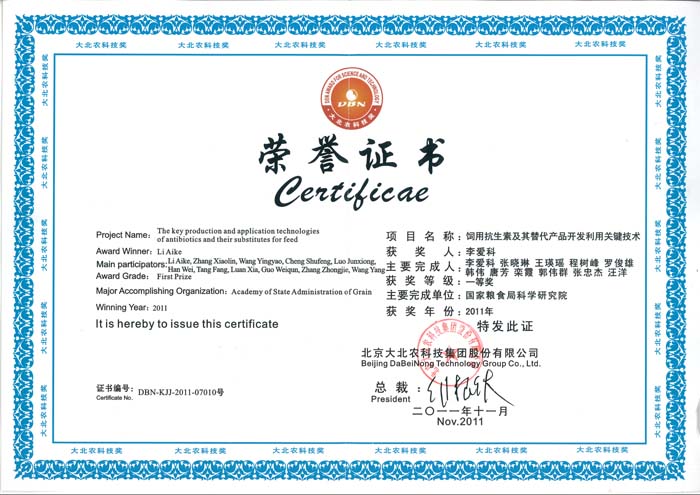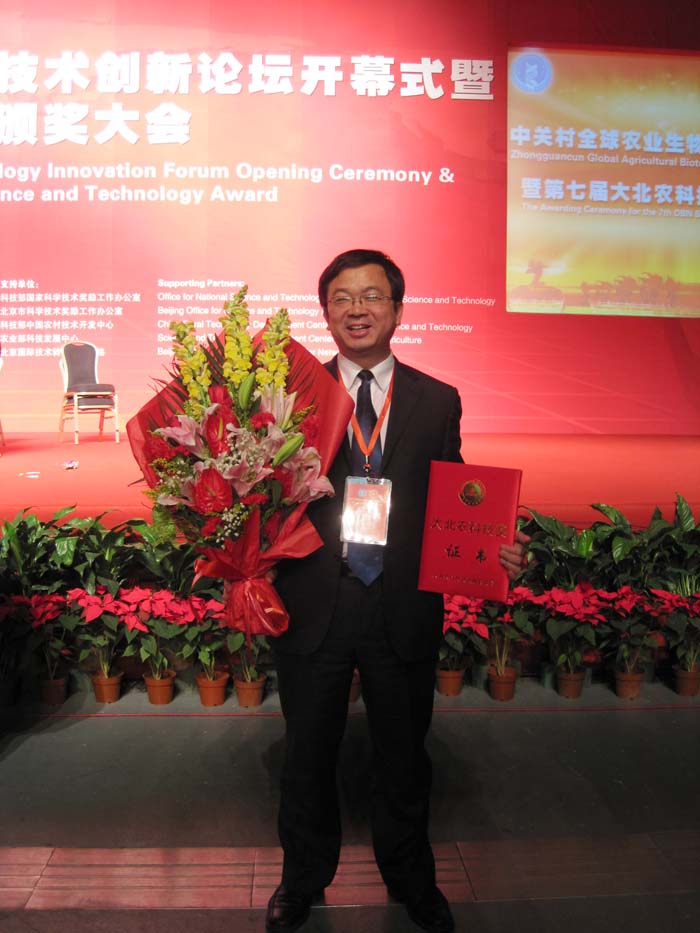

The 2011 DBN science and technology project mainly undertaken by ASAG “Key technologies in development and application of feed antibiotics and its alternative products" offered by Dr Li Aike won first prize of seventh DBN Technology Award. The DBN Technology Award is a social force established awards approved by the Ministry of Science and Technology of China, and mainly encourage the research results that have a certain effect at home and abroad in the field of applied agricultural research. 7th DBN Awards Ceremony was held at the National Convention Center on November 19, 2011. Zhu Lilan, the former Science and Technology Minister, Xun Rigan, the vice president of the Chinese Academy of Engineering and the other four academicians, Kangzhen, the national chief veterinarian issued the certifications to the winners and the first prize also won a bonus of one hundred thousand Yuan. Development of substitutions to feed antibiotics and reduce the residues of antibiotics has become a significant problem in China's feed industry and the development of aquaculture. Firstly, the project developed a key technology for feed antibiotics production and application, optimized the product parameters of tylosin, apramycin and doramectin and studied the optimized application technology of over 10 kinds of antibiotics including tylosin, apramycin, yellow moldprime, bacitracin zinc, doramectin, chlortetracycline etc when being used as drug additives for pigs, chickens, cattle. Secondly, the project developed the technology of microencapsulated lactic acid bacteria based on package before fermentation. New technology and new equipment for large-scale production of microbial microcapsules were also established which solved the bottle neck problem such as poor stress tolerance, low activity in long term storage and high cost of lactic acid bacteria. Thirdly, developed new multi-effect biological protein feed by meal fermentation and enzyme technology; finally, the project established the application technology of antibiotics alternative products in the feed industry and farming technology. This project will reduce more than 50% of the use of antibiotics in livestock diets which has a significant meaning for ensuring food safety.
